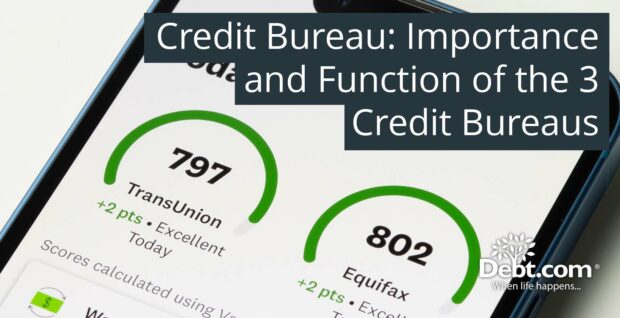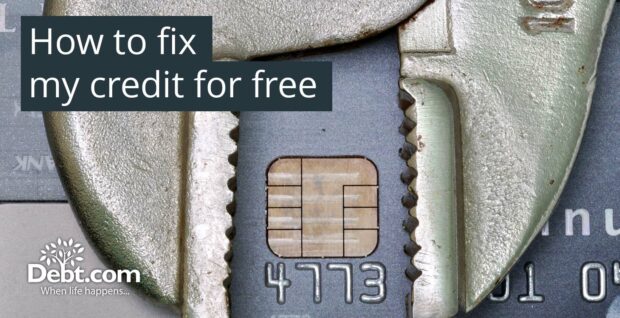
Credit scores drop because of ten factors that influence them negatively. Understanding what causes the credit score to drop helps to discover the causes of sudden changes. First, late or missing payments significantly impact the payment history. Second, applying for a new loan or credit results in hard inquiries on the credit report, temporarily lowering the score. Third, credit card utilization increases when balances exceed credit limits. Fourth, a sudden reduction in credit limits increases the utilization ratio, negatively impacting the credit score. Fifth, closing a credit card decreases the available credit and affects the utilization ratio.
Sixth, inaccurate information on the credit report, such as incorrect payment statuses or unfamiliar accounts, causes a credit score decline. Seventh, major events like foreclosure or bankruptcy negatively affect credit scores. Eighth, identity theft leading to unauthorized accounts or transactions lowers the score. Ninth, co-signing a loan holds joint responsibility, and missed payments by the borrower hurt the credit. Lastly, paying off a loan temporarily lowers the credit score by reducing credit mix diversity.
Review recent financial transactions for late payments, new credit applications, or changes in credit card balances to identify reasons for a credit score decline. Regularly monitor the credit report for inaccuracies and dispute them promptly. Understand the long-term impact of events like foreclosure or bankruptcy on creditworthiness. Stay vigilant against identity theft by monitoring the credit report for unusual activity.
Understanding the factors and their impact on the credit profile is crucial when wondering, “What makes your credit score go down?” Being proactive in managing finances and credit responsibly helps mitigate declines and maintain a healthy credit score, whether the concern is “Why did my credit score drop 20 points?” or “What habit lowers your credit score?” Assess recent financial decisions and events that have led to a significant drop if the credit score dropped 50 points, and take steps to improve the credit standing over time.
Table of Contents
1. You have Late or Missing Payments
Late or missing payments significantly impact credit scores. Payment history is critical in the FICO® Score, used by 90% of top lenders and contributing 35% to the score. Even one late payment lowers the score. Creditors report delinquencies to major credit bureaus when payments are over 30 days late, reducing the score. The effect worsens at 60 or 90 days overdue. Unpaid debts go to collection agencies, further harming scores and appearing on credit reports for seven years.
For example, a 30-day late payment drops a 713 score by 90-110 points, varying by scoring models like Equifax and TransUnion.
Promptly pay overdue amounts to address late or missing payments. Ask creditors to refrain from reporting to credit bureaus after receiving payment to prevent the mark on the credit report for seven years. Success isn’t guaranteed but mitigates significant score damage.
2. You Recently Applied for a New Loan
The recent application for a new loan resulted in a decrease in the credit score. Lenders request the credit report, like a loan, when applying for new credit. The evaluation considers payment history, current debt, and account types. Each lender-initiated credit check, known as a hard inquiry, is noted on the credit report and slightly impacts the score.
For example, a limited credit history or several recent inquiries potentially lower a credit score. Manage multiple inquiries within a short timeframe, even though these effects are typically short-lived and minor. A hard Inquiry generally remains on the credit report for about one year before its influence diminishes.
Avoid unnecessary credit applications to mitigate these impacts. Maintain intervals of at least six months between applications to allow the score to recover.
Conduct a comprehensive investigation of potential credit options and only apply for loans that are likely to be approved. It reduces the risk of unnecessary inquiries impacting the credit score.
Each new hard inquiry reduces the score by 10 points or less, depending on the overall credit profile and the scoring methodologies used by credit bureaus like Equifax and TransUnion. Applying for a new loan further impacts the score due to factors such as increased debt obligations or changes in the length of the credit history. Maintain a healthy financial standing over time by managing credit applications wisely and understanding these dynamics.
3. Your Credit Card Utilization has Increased
Increased credit card utilization refers to using a larger portion of available credit, significantly impacting credit scores. Credit card utilization is crucial in credit scoring models like FICO®, which influences about 30% of an individual’s score. “Why does higher credit utilization decrease your credit score?” Higher utilization leads to lower credit scores, suggesting greater reliance on credit and potential financial strain.
For example, if someone has a $5,000 credit limit and a $4,000 balance, their utilization ratio is 80%. The high ratio signals creditors that the individual uses most of their available credit, which is considered risky behavior. Creditors typically view high utilization negatively because it implies a higher risk of difficulty in managing debt repayment, thus affecting creditworthiness.
The impact of increased utilization on credit scores depends on the starting score and the magnitude of the increase. Higher utilization results in a more significant decline in credit scores. For instance, someone with an excellent score only experiences a minor impact with a slight increase in utilization, whereas someone with a fair score sees a noticeable drop.
Increasing utilization from a low percentage (under 10%) to a high percentage (over 70%) substantially decreases credit scores. Scoring models penalize borrowers who utilize a large portion of their available credit, reflecting the increased risk associated with such behavior.
Several strategies help mitigate the negative effects of increased Credit Card Utilization on credit scores. Paying down balances early before the billing cycle ends reduces reported utilization when creditors report to bureaus. It helps maintain or improve credit scores by keeping utilization ratios low. Another approach is reducing credit card spending to prevent further increases in utilization. Consolidating credit card debt with personal loans converts revolving credit into installment loans with potentially lower utilization ratios.
Increasing credit limits on existing cards or opening new ones increases available credit, thereby lowering utilization ratios if balances remain stable or decrease. Avoid closing unused credit card accounts as it reduces total available credit, potentially increasing utilization ratios and negatively impacting credit scores.
Managing credit card utilization effectively is essential for maintaining or improving credit scores. Maintaining healthy financial profiles is achieved by controlling spending and managing balances strategically.
4. Your Credit Limits Decreased
Decreased credit limits lower credit scores by impacting the credit utilization ratio, a critical factor in credit scoring models like FICO®. Credit limits determine the borrowing capacity of credit cards. The credit utilization ratio rises when the credit limit decreases and the balance stays the same or increases.
For instance, if the total credit limit across all accounts is $10,000 and the total balance is $3,000, the utilization ratio is 30%. A credit card issuer lowering the limit to $6,000 while maintaining the $3,000 balance increases the utilization ratio to 50%. The higher ratio signals to creditors that borrowers are using a larger portion of their available credit, which is a risky behavior.
Credit card issuers reduce credit limits for reasons such as missed payments, late payments, or minimal card usage to manage risk exposure. A reduced credit limit catches individuals off guard, potentially affecting their ability to manage debt and leading to lower credit scores.
The impact of reduced credit limits on credit scores varies depending on individual circumstances. A significant increase in utilization ratio due to lower limits leads to a notable decline in credit scores. The points lost vary based on factors like initial credit scores and the extent of the credit limit reduction.
Reducing credit limits negatively impacts credit scores, but several strategies mitigate these effects. Opening a new credit card with a higher limit or requesting a credit limit increase from current issuers helps offset the impact of reduced limits. Obtaining an increase is challenging if the credit limit was recently reduced, and managing credit utilization effectively to maintain a healthy credit score regardless of changes in credit limits or balances.
5. You Closed a Credit Card
Closing credit card accounts significantly impacts credit scores due to several factors. Canceling a credit card no longer in use has two negative effects on the credit score. First, closing a credit card reduces the total available credit. The decrease increases the credit utilization ratio if there are balances on other credit cards. For example, closing a credit card with a $5,000 limit reduces the available credit, potentially raising the utilization ratio if balances remain on other cards and the total credit limit is $20,000.
Second, closing a credit card shortens the average length of credit history, which accounts for 15% of the FICO® Score. Closing an older card reduces the accounts’ average age, negatively impacting the credit score. For instance, closing a long-held card decreases the average age of accounts.
The impact on the credit score from closing a credit card depends on various factors, including how long the account has been open and its credit limit. The impact is more significant if the closed card was one of the oldest accounts or had a high credit limit.
Think about alternatives before closing a credit card to minimize its negative effects. Consider downgrading to a no-fee card with the same issuer if the account has a high annual fee or misuse is a concern. Another strategy is to keep the card active by making occasional small purchases and paying them off promptly to maintain its positive impact on the credit score.
6. Your Credit Report has Inaccurate Information
Inaccurate information on credit reports results in a substantial decrease in the credit score. Conducting routine credit report checks is imperative to guarantee the file is free of inaccuracies. The credit report contains errors and false information about the payment history negatively affects the credit score.
For example, the credit score is adversely affected if a lender inadvertently reports inaccurate information, such as a late payment made on time. Identity fraud leads to inaccurate information on the report, such as accounts that were never established or debts that were never incurred. The data in the credit reports is the foundation of the credit score, and these inaccuracies result in a lower score.
A transposed number, a payment reported to the incorrect account, or a payment reported late when it was not are all examples of how inaccurate information impacts the score. These errors result in a substantial decrease in the credit score, although the number of points lost differs depending on the specific inaccuracies and the overall credit profile.
Examine the credit reports for errors to resolve the issue. Accumulate the necessary documentation to contest any inaccuracies. Complete the procedure with each credit agency separately when attempting to dispute errors in credit reports,” which is done through mail, internet, or phone. These errors are rectified to restore the credit score and guarantee that the credit report accurately represents the financial behavior.
7. You’ve Experienced Major Events such as Foreclosure or Bankruptcy
Major events such as foreclosure or bankruptcy severely affect the credit score because they show extreme financial difficulties. These events result in a significant decrease in creditworthiness, warning lenders that the ability to manage debt has been significantly affected.
Foreclosure typically occurs after four consecutive months of non-payment, when a mortgage lender takes possession of the property due to missed mortgage payments. The procedure is detrimental to the credit score, indicating that the mortgage obligations are unable to be met. For example, the credit score declines by 200-300 points due to a foreclosure, contingent upon the initial credit status. The capacity to obtain new loans, particularly mortgages, is significantly impacted by the foreclosure mark, which remains on the credit report for seven years.
Bankruptcy is even more detrimental. It is a legal procedure through which borrowers attempt to obtain relief from their debt obligations. There are two primary categories of personal bankruptcy: Chapter 7 and Chapter 13. Chapter 7 bankruptcy continues on the credit report for 10 years from the filing date, while Chapter 13 bankruptcy remains for seven years. The immediate effect on the credit score is a decrease of 200-300 points or more. The most detrimental event to a credit score is bankruptcy, which indicates an extreme failure to manage debt.
The credit score decline is further exacerbated by the cumulative effects of late payments that culminate in a foreclosure or bankruptcy. Each missed payment adversely affects the credit score, and the significant event increases these effects, resulting in a substantial overall decline.
Some measures are implemented to facilitate recovery from these significant incidents. First, maintaining a strict budget to avoid debt accumulation. Second, responsible use of a secured credit card assists in rebuilding one’s credit score by showcasing one’s capacity to manage credit effectively. Third, improve the credit score by guaranteeing that all future expenses are paid promptly. Fourth, regularly reviewing the credit report to verify the accuracy of all information and to monitor the progress in rebuilding the credit is crucial. Lastly, professional credit counseling offers strategies and assistance to rebuild credit and manage debt.
8. You’re a Victim of Identity Theft
Identity theft has a substantial impact on the credit score. It happens when someone opens accounts, makes purchases, or commits fraud using personal information without consent. The fraudulent activity significantly affects the credit score, frequently resulting in delinquent accounts and unresolved debts under the borrower’s name.
Identity theft decreases credit scores because fraudulent accounts are typically left unclaimed, leading to late payments and defaults. For instance, if someone opens a credit card in someone else’s name and fails to pay, it is reported as a delinquency on the credit report, significantly reducing the credit score. Multiple hard inquiries from creditors reviewing the thief’s applications lower the score.
The degree of the decline in score depends on the duration and severity of the fraud. A single delinquent account results in a score reduction of 100 points or more, especially if the credit was previously excellent. The effect is even more pronounced when identity theft involves multiple accounts or substantial debt.
File a report at identitytheft.gov to repair the harm caused by identity theft. Official documentation is essential for disputing fraudulent information on credit reports. Contact the credit bureaus to place a fraud alert on the reports, which helps prevent additional damage. Reviewing the credit reports again in 30 days ensures that the corrections have been made. Consider freezing the credit to prevent fraud in the future since it prevents new accounts from being opened.
9. You Co-Signed a Loan
Co-signed loan agreements greatly contribute to a drop in the credit score. Co-signing a loan or credit card application guarantees the debt, enabling an acquaintance or relative to capitalize on a favorable credit history. The credit score is adversely affected if the primary creditor incurs a substantial balance or makes late payments, although the act of co-signing as such does not affect the credit.
For instance, co-signing a loan for a relative who fails to make payments or makes late payments reflects on the credit report and theirs. A co-signed credit card with a substantial balance affects the credit score if the primary creditor accumulates a large balance. A late payment reduces the credit score by as much as 90-110 points, though the specific points lost vary based on the severity of the issue and the overall credit profile.
Managing the impact of co-signing requires proactive measures and close monitoring. Ensure that statements for the co-signed account are sent to the residence or are available online for close monitoring. It allows for early identification of potential issues and prompt action to prevent negative impacts on the credit. Make payments to avoid a negative mark on the credit report since the entire debt amount is the responsibility.
10. You Paid Off a Loan
Paying off a loan is a significant milestone that sometimes results in a temporary decrease in the credit score. It involves closing an active credit account, which impacts various aspects of the credit profile.
Changing the credit mix is a significant way in which paying off a loan results in a decrease in the credit score. Credit mix is the assortment of credit accounts an individual maintains, including personal loans, mortgages, auto loans, and credit cards. A diverse mix of credit classifications positively impacts the credit score. Paying off a loan and closing an account result in a modest decrease in the credit score by reducing the diversity of the credit mix.
For instance, paying off a car loan eliminates one credit account type if an individual has a mortgage, credit card, or auto loan. Credit Mix is not the most significant factor in credit scores, but it does have an impact, and a decrease in variety negatively impacts the score.
The exact points at which the credit score decreases after repaying a loan differ depending on the loan’s specifics and the overall credit profile. The impact is typically minor and frequently transient, particularly if there is a strong track record of responsibly managing other forms of credit.
Maintain a diverse array of credit accounts to mitigate the effect of repaying a loan on the credit score. Continue to utilize the other credit accounts and maintain their functionality responsibly. For example, use a credit card frequently for small purchases and pay off the full balance every month. Consistent and responsible credit management helps mitigate any decline in credit score resulting from loan repayment.
How to Identify the Cause of a Credit Score Drop?
To identify the cause of a credit score drop, follow three steps. First, understand the common reasons why the credit score decreases. A single missed payment substantially impacts the credit score, with multiple late payments exacerbating the issue. Maintaining a high credit utilization ratio decreases the credit score. Keeping the ratio at or below 30% is advised to preserve the creditworthiness. Inaccurate information on the credit report damages the credit score. Regularly check the credit report and dispute any discrepancies to ensure accuracy.
Second, verify the credit report. Obtain the free annual credit report from each of the three main credit bureaus at AnnualCreditReport.com. Review these reports to confirm the accuracy of reported information and monitor changes in the credit score. Services like Experian’s free credit report provide monthly updates and the “see what’s changed” feature to highlight new information affecting the score. Detecting issues early and taking prompt action is made easier with regular monitoring.
Lastly, take proactive measures to improve the credit score after identifying the cause of a decline. Maintain a positive payment history by paying bills on time, as payment history significantly influences the credit score. Responsible credit management includes keeping credit card balances low and paying more than the minimum. Limiting new credit applications minimizes the impact of hard inquiries. Tools like Experian Boost® enhance the credit score by including bills not typically reported to credit bureaus.
Following these steps diligently helps pinpoint the cause of any decline in credit score, make effective corrections, and improve credit health. Regular monitoring and responsible credit management are crucial for maintaining a healthy credit score and achieving financial goals.
Does Your Credit Score Drop when You Check It?
No, your credit score does not decrease when you check it. Monitoring own credit score is classified as a soft inquiry, which does not affect the credit scores. Soft inquiries are not visible to lenders or creditors and occur when an individual checks their credit report or score. There is no reason to be concerned about the potential impact of checking the credit score on creditworthiness. Occasionally verify the credit score to stay informed about the financial situation and identify any errors or unauthorized activity early. The proactive approach allows one to manage the credit responsibly and take necessary measures to maintain or improve the credit score over time.
Can Debt Consolidation Loans Cause Credit Score Drop?
Yes, debt consolidation loans can cause a credit score drop. Debt consolidation loans’ impact on the credit score is mostly determined by how responsibly they are managed.
Debt consolidation loans have positive and negative impacts on the credit score. The credit score is positively impacted by the responsible repayment of the loan. Demonstrating responsible credit behavior by making on-time payments on the consolidated debt results in a progressive increase in the score. It is beneficial if you are struggling to manage multiple types of debts with different interest rates and payment schedules.
Debt consolidation loans negatively affect credit scores if not managed appropriately. Missing payments or taking on new debt rather than using the loan to settle existing obligations negatively impact the credit score. Late payments and delayed payments are substantial factors that result in a decline in the credit score. Utilize the loan in the manner intended and refrain from accruing additional debt.
Consolidating debt affects the credit score in various ways, including the age of the credit history, credit utilization rate, and on-time payments. The average age of the accounts and the credit utilization rate are critical components of the credit score, and they are impacted by the new loan taken out when consolidating debt.
Avoid increasing credit utilization, be cautious with new credit inquiries, and make timely payments to reduce the negative impact on the credit score. Verify the credit score before applying for a consolidation loan and compare the terms.
Debt consolidation loans harm credit scores if not handled properly, but they assist if done appropriately. Recognize the effects and take proactive steps to ensure debt consolidation raises the credit score. Asking “How Does Debt Consolidation can Hurt Your Credit?” helps one properly understand the concerns. Proper process management is imperative to prevent adverse consequences.
What is a Good Credit Score?
A good credit score is an indicator of financial responsibility and trustworthiness, leading to better loan and credit card terms. Lenders view a good credit score as between 670 and 739, considered low-risk. Scores between 740 and 799 are very good, offering more excellent product offers and borrowing rates. A score of 800 to 850 is excellent, providing the best loan terms, the lowest fees and interest rates, attractive credit card rewards, and refinancing opportunities at lower rates. For example, a 789 credit score is very good, ensuring competitive financial products and services.
Achieving and maintaining a Good Credit Score requires careful financial management. Paying bills on time demonstrates dependability to lenders and enhances creditworthiness. Keeping credit card balances low, ideally around 30% of the limit, improves the credit utilization ratio. A diverse credit mix, such as credit cards, installment loans, and retail accounts, shows the ability to manage various financial obligations. Keeping older accounts open lengthens credit history, positively affecting the score. Limiting new credit applications prevents multiple inquiries from harming the score. Regularly monitoring the credit report for issues or identity theft is essential. A prudent financial approach and promptly addressing discrepancies protect and enhance a Good Credit Score and overall financial well-being.
What is Considered a Bad Credit Score?
A Bad Credit Score is within certain ranges in credit scoring models like FICO and Vantage Score. A FICO Score of 8 below 580 is considered bad, whereas a score between 580 and 669 is fair. VantageScore below 600 is typically poor or bad, while scores between 601 and 660 are fair. Having a Bad Credit Score makes it challenging to obtain loans or credit, and if approved, it results in higher interest rates.
Can You Still Improve Your Bad Credit Score?
Yes, you can still improve your credit score by following guidelines to enhance your credit profile. Start with a free credit score check to understand variables like credit utilization rate, length of credit history, credit mix, and recent inquiries. Correct any inaccuracies on the credit report. Paying on time is crucial for positively impacting the credit score. Lowering credit card balances improves the credit utilization rate; aim for balances low relative to credit limits. Limit new credit accounts to avoid adverse effects from multiple inquiries.
Consider becoming an authorized user on another person’s credit card or applying for a secured credit card to develop the credit history. Seek credit counseling for better money management. The timeline for noticeable credit score improvement varies. Gradual improvements typically occur over months to a year with consistent on-time payments and debt reduction. Rebuilding the credit score requires time and commitment to sound credit practices.
Maintain good credit management and follow these steps to improve your credit score. Diligent efforts over time lead to a healthier credit profile, even if immediate changes aren’t apparent.
What are the Best Strategies for Maintaining a Good Credit Score?
The best strategies for maintaining a good credit score are listed below.
- Understand the process of calculating the credit scores. Identify the factors that affect the credit score, including payment history, credit utilization, credit mix, duration of credit history, and recent inquiries.
- Automate the bills. Establish automatic payments for credit card bills, loan payments, utility bills, and insurance premiums to guarantee consistent on-time payments.
- Maintain a low credit utilization ratio. Monitor and manage the credit card balances to maintain a credit utilization ratio of less than 30% of the total credit limit. Lower utilization rates, preferably around 10%, produce the best credit score outcomes.
- Regularly review the credit report and verify the credit score to maintain a proactive approach. Maintaining a favorable credit profile necessitates promptly addressing any discrepancies or dubious activities.
- Pay all bills on time. The credit score is significantly influenced by payment history, so prioritize timely payments for all bills. Ensure that the personal information and credit accounts on the credit report are accurate.
- Diversify the credit. Prove the capacity to oversee various credit products, such as credit cards and loans. A diverse credit portfolio positively impacts the credit score, which indicates responsible financial behavior.
- Decrease the number of hard inquiries on your credit report. Minimize the number of new credit applications to avoid opening multiple new credit accounts. Each inquiry temporarily reduces the credit score and impacts the creditworthiness.
- Continue cultivating positive credit habits by adhering to consistent, responsible financial practices over time. Good credit practices lead to lower interest rates, access to premium credit card rewards, and long-term financial benefits.











